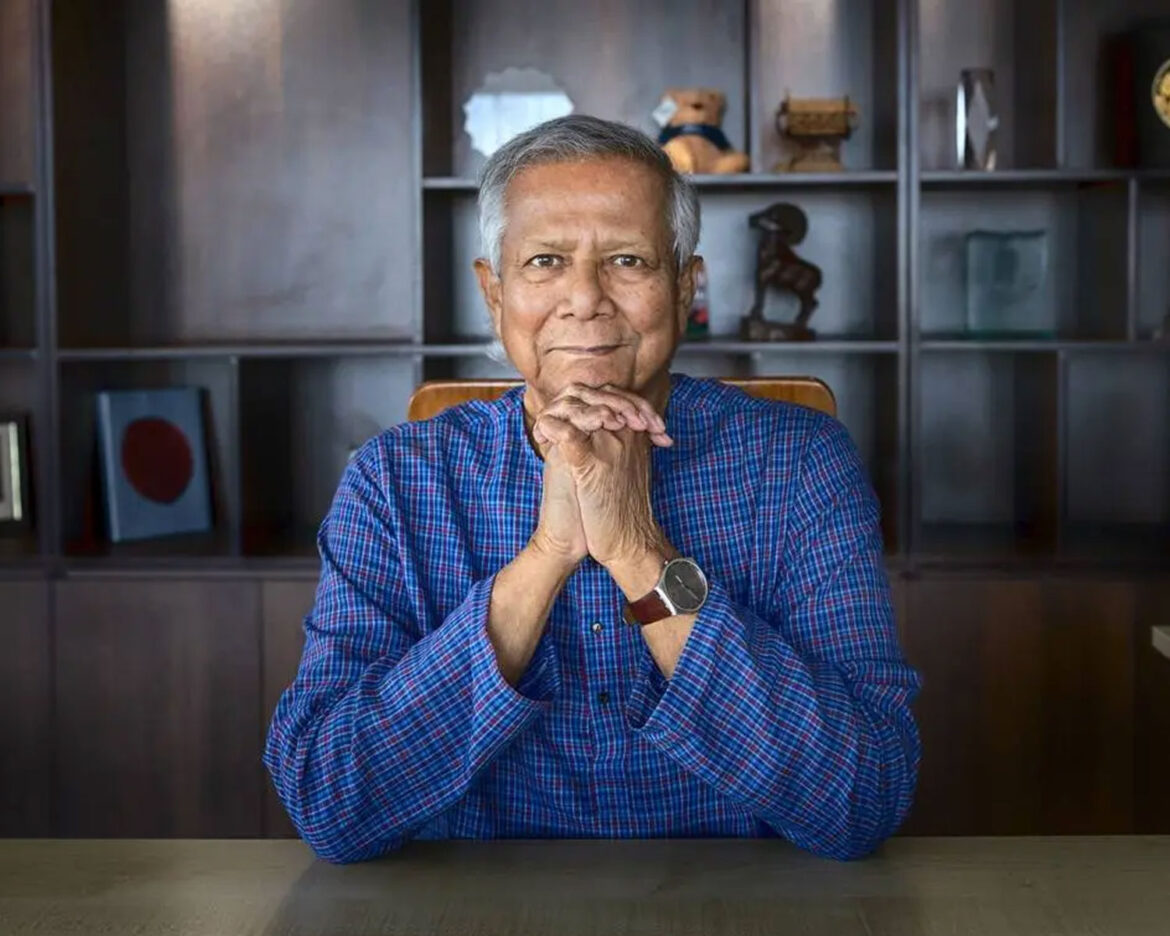Nobel Peace Prize laureate Muhammad Yunus was named chief adviser of Bangladesh’s interim government on Tuesday, following the resignation and flight of Prime Minister Sheikh Hasina amidst a violent crackdown on a student-led uprising.
Yunus’s appointment by Bangladesh President Mohammed Shahabuddin came after extensive consultations with student leaders and the chiefs of the three military services. The announcement was made by local media late Tuesday, citing a statement from the president’s office.
Yunus, 84, who along with his Grameen Bank won the 2006 Nobel Peace Prize for pioneering microcredit initiatives to alleviate poverty, will head an interim government expected to navigate the country through a tumultuous period. The power vacuum followed a televised address by the army chief announcing Hasina’s resignation after weeks of deadly violence that claimed approximately 300 lives and injured thousands.
The interim government is tasked with organizing elections soon after assuming control. Yunus is set to return to Dhaka on Thursday after a medical procedure in Paris, according to his spokesperson.
Nahid Islam, a prominent student leader, informed reporters that the student movement has recommended an initial list of 10-15 members for the interim government, which includes civil society and student representatives. The final list is expected to be completed within 24 hours.
Yunus’s spokesperson confirmed his acceptance of the role. Damage to the prime minister’s residence was evident following its storming and looting by demonstrators on Monday.
President Shahabuddin has also proposed the inclusion of a veteran from Bangladesh’s 1971 independence war in the interim government. The uprising that led to Hasina’s downfall was rooted in opposition to public sector job quotas for veterans’ families, which critics viewed as favoring the ruling party’s allies.
Hasina has taken refuge in New Delhi, staying at a safe house on the city’s outskirts.
Earlier on Tuesday, Shahabuddin dissolved parliament, paving the way for the interim government and new elections. The opposition leader, Begum Khaleda Zia, a long-time rival of Hasina, was released from house arrest.
Student protesters have warned of further demonstrations if parliament was not dissolved. Nahid Islam, a key figure in the anti-Hasina campaign, stated in a video message: “Any government other than the one we recommended would not be accepted.”



